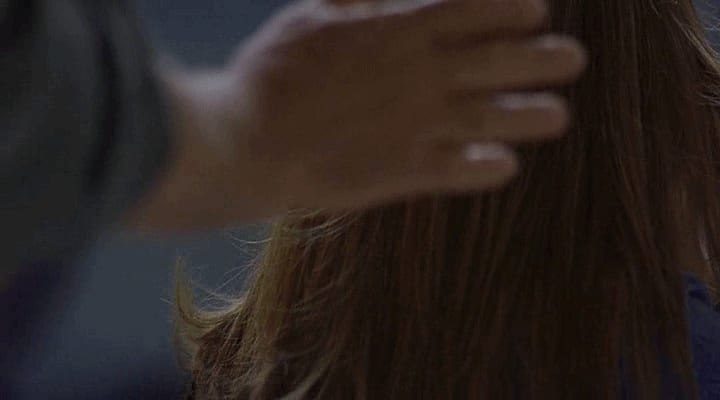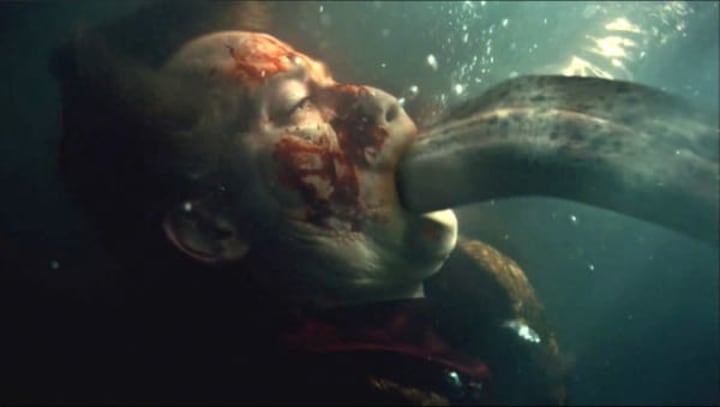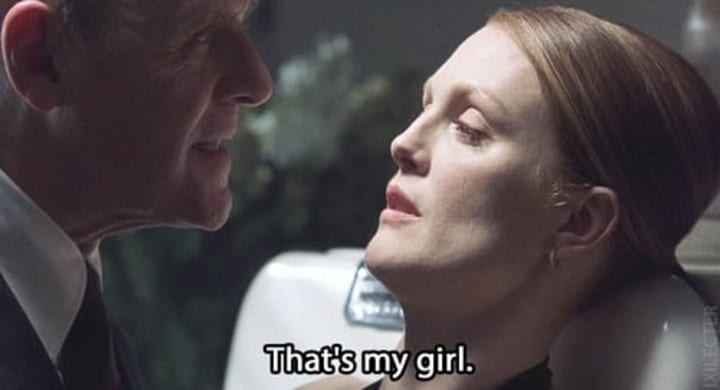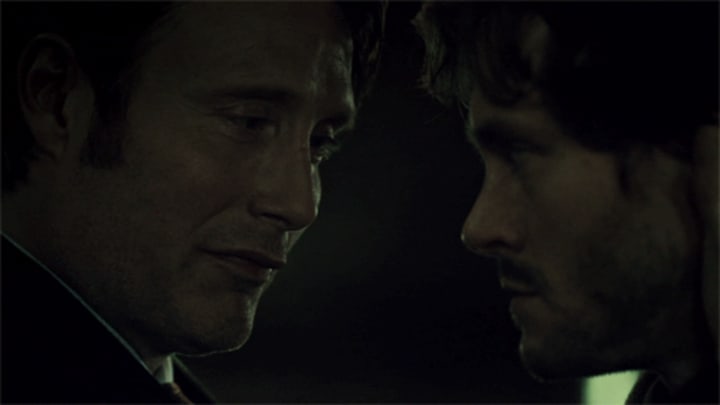Hannibal (2001) Turns 15 - How It Was Supposed To End
Hannibal (2001) is flawed and here is one particular reason why... a VERY different ending that is just a little too hard to swallow.

In 1991 the world of cinema was gifted Silence of the Lambs - a silver screen adaptation of the 1988 Thomas Harris Novel. Ten years later on 9 February 2001 'Fannibals' picked up their knives and forks ready to devour the sequel Hannibal. Now 15 years on we examine why Silence was entered into the National Film Registry whilst Hannibal is a maligned and often forgotten gem. Harris's novels have brought to us one of the world's most formidable villains, so how did Hannibal's translation slip so unfavourably from its pages? Whilst easily one of my favourite films of all time, Hannibal (2001) is flawed and here is one particular reason why... a VERY different ending that is just a little too hard to swallow.
The book of Hannibal was the second highest best-selling novel of 1999, with Stephen King even citing it as one of the two most frightening novels of modern times (the other being The Exorcist). It also contained a twist ending that would surely pull in the thrill seekers that watched the likes of Misery (1990), The Fugitive (1993) and Se7en (1995) which had dominated thrillers of that decade. For whatever reason MGM decided on their own interpretation and the result only garnered a rating of 39% on Rotten Tomatoes and a Metacritic rating of just 57 out of 100.
Ten years after Anthony Hopkins had fled to the Bahamas in the climax of Silence of the Lambs, he was back. This time it was Julianne Moore in tow, replacing Jodie Foster as F.B.I agent Clarice Starling. A sequel without Hopkins and Foster was a complete no-go, but with only Foster out after Silence, the plans were in place. Both director Ridley Scott and Hopkins had opted for Moore as the replacement Agent Starling; she beat the likes of Cate Blanchett, Angelina Jolie and Gillian Anderson.
N.B. Anderson got her wish to appear in the Hannibal universe on Bryan Fuller's 2013 NBC version.

Anderson with Mads Mikkelsen in the NBC version
On Moore, Ridley Scott said:
She is a true chameleon. She can be a lunatic in 'Magnolia', a vamp in 'An Ideal Husband', a porn star in 'Boogie Nights' and a romantic in 'The End of the Affair'.
Moore promised a completely different version of Starling to Foster; making good on her promise that is certainly what we got. The fiery red headed Clarice portrayed far less vulnerability than the fresh faced Jodie Foster. Perhaps it is this Clarice that was intended for Hannibal's true ending . Abandoning what she knew was right, Clarice Starling embarks on a moonlight flit with Dr. Lecter to Buenos Aries and the novel leaves us a chilling closing sentence:
We'll withdraw now, while they are dancing on the terrace the wise Barney has already left town and we must follow his example. For either of them to discover us would be fatal.

Foster and Hopkins take up the majority of the 131 minute screen time, whilst the rest inhabited by a short jaunt to Florence or Gary Oldman's facial prosthetics. This means several key characters and storylines are shrunk to minor roles, or *worse* omitted. Jack Crawford (who fans of the NBC show will know is key) is entirely excluded from Hannibal (2001), whilst acting as Clarice's compass in the novel:
In recent weeks, he had started hanging up his suit coat in the office and putting on a sweater his late wife Bella, had knitted for him. He looked much older now than any memory she had of her own father.
The Crawford/ Starling saga is arguably the secondary crux to the Lecter legacy. Only Jack Crawford features in the lives of F.B.I agents Will Graham (Red Dragon, Silence of the Lambs) and Clarice Starling (Hannibal) . Whilst Graham and Starling have differing paths and relationships with Lecter, their bonds to Crawford as a father figure remain constant. Scott Glenn, who portrayed Crawford in Silence, declined Hannibal as he couldn't put himself in such a torturous mindset again. Rather than recast, Crawford was axed.
Thankfully, suitably faithful to literature was Gary Oldman's stint as Hannibal's mutilated ex-patient, Mason Verger. The novel version of Verger was a sadistic orphanage owner who molested the children and tortured his sister as foreplay. Whereas Oldman's portrayal was near perfect, there was a key strand lost from the big screen version. Most disappointingly absent is the lack of his steroid pumped sister Margot. Whilst Katharine Isabelle's turn as the lesbian sibling of Mason Verger pops up in Season 2 of NBC's Hannibal, it is a pity Ridley Scott never realised the character's potential. Isabelle's Margot is done well, but it is no book Margot:
Straight from the shoulder clearly Margot Verger was a bodybuilder. Beneath her corded neck, her massive shoulders and arms stretched the mesh of her tennis shirt. Her eyes had a dry glitter and looked irritated, as though she suffered from a shortage of tears.
Hannibal (2001) sees Verger fed to his own flesh eating pigs by his assistant Dr. Cordell Doemling- the novel has Margot kill Mason with a Moray eel; however, this isn't done before she sodomises her own brother and extracts his seed as a way to claim the Verger fortune. Whilst this ending made it into the NBC series version of Hannibal, the 2001 film lost one of its most interesting plotlines entirely.

Hannibal (2001) does retain most of the book's gore. The iconic dinner party scene of Paul Krendler remains largely intact. Watching Ray Liotta feast on his own grey matter was always a chilling and effective moment of Hannibal (2001). The book calls Krendler Starling's nemesis, and despite Starling hating her superior officer as a perverted creep, even she was sad to see him fall victim to Dr.Lecter. This wasn't quite good enough for critics who were less than impressed, calling the dinner party scene a gross way to ensure an increased censor rating. The book takes it one step further as Starling herself dines on Krendler's brains before Lecter shoots him with a crossbow.

As for that dramatic finale, it sees a complete U-Turn of events for the character of Clarice. Under the guise of hypnosis and psychotropic drugging, the bones of Clarice's father are brought back to life by Lecter. Perhaps this was too much like the junk yard scene in A Nightmare on Elm Street 3: Dream Warriors for Scott?

Hannibal later tries to convince Clarice that she is in fact his long dead sister Mischa and despite originally resisting, Clarice eventually succumbs to her feelings. The couple flee, only to be seen many years later by Barney, the orderly from the Baltimore Hospital for the Criminally Insane. Barney's role is also significantly reduced during the film due to the alternative ending. At the time of release the novel was criticised for a thrown together ending that was written for shock value, but ultimately it makes sense. Lecter and Starling always had a mentor/student relationship and to see this reached on paper is pure gold.

Even Hannibal's 2001 ending was largely edited before release. None of Scott's versions saw the two leaving together, but the kitchen scene where Clarice handcuffs herself to Lecter (to prevent his escape) wasn't supposed to be. One climax had Lecter and Starling kiss, then the latter allows his escape. The relationship between Lecter and Starling was always a grey area; just as Bryan Fuller explored the relationship between Lecter and Will Graham during the TV series. With the character of Clarice caught up in MGM legal disputes, it is refreshing to see someone explore the nature of Hannibal's personal relationships.
After wrapping filming on the NBC series, Hugh Dancy and Mads Mikkelsen said their final clifftop scene went on for a little bit longer:
Actually we went much further than [the hug]. There were lips hovering above lips. We really went for it, and we were like, 'We hope you like it!'
Bryan Fuller had intended for his Hannibal series to run for seven seasons, hopefully untangling Clarice from MGM before that time. After Season three and with dropping ratings, Fuller sensed the end was near, still wanting to do some sort of justice to Harris's work. Fuller condensed Hannibal (1999) into his fourth season; it is therefore no coincidence, and with intended irony, that the final episode (for now) was titled "The Wrath of the Lamb".

With Hannibal (NBC) cancelled the true ending of the Hannibal novel may never be realised, truly an injustice to the world of literature. Would Sherlock's The Final Problem be the same if he and Moriarty hadn't toppled over the Reichenbach Falls; would Lord of the Flies be the same if the group hadn't killed Piggy; would Dracula be the same if Mina Harker was never transformed? Perhaps in some alternative reality, or the distant future where MGM lets Clarice go, we will get to view Thomas Harris' masterpiece in its intended form. In the meantime we will have to settle for watching the 2001 version with some fava beans and a big glass of Chianti.
About the Creator
Tom Chapman
Tom is a Manchester-based writer with square eyes and the love of a good pun. Raised on a diet of Jurassic Park, this ’90s boy has VHS flowing in his blood. No topic is too big for this freelancer by day, crime-fighting vigilante by night.






Comments
There are no comments for this story
Be the first to respond and start the conversation.